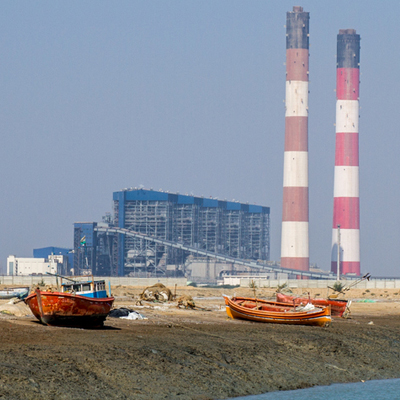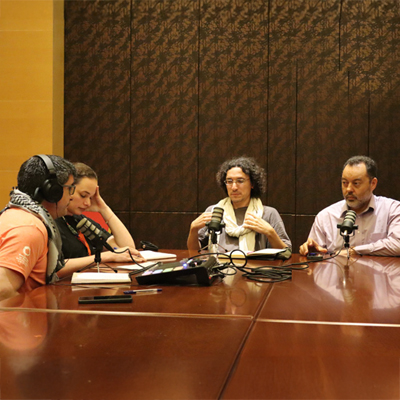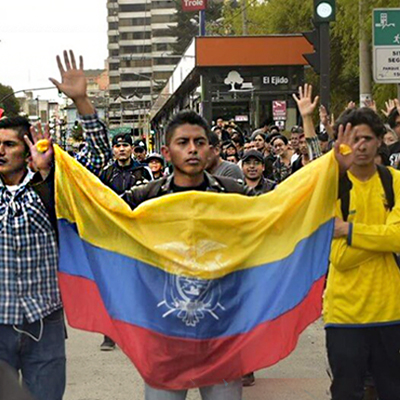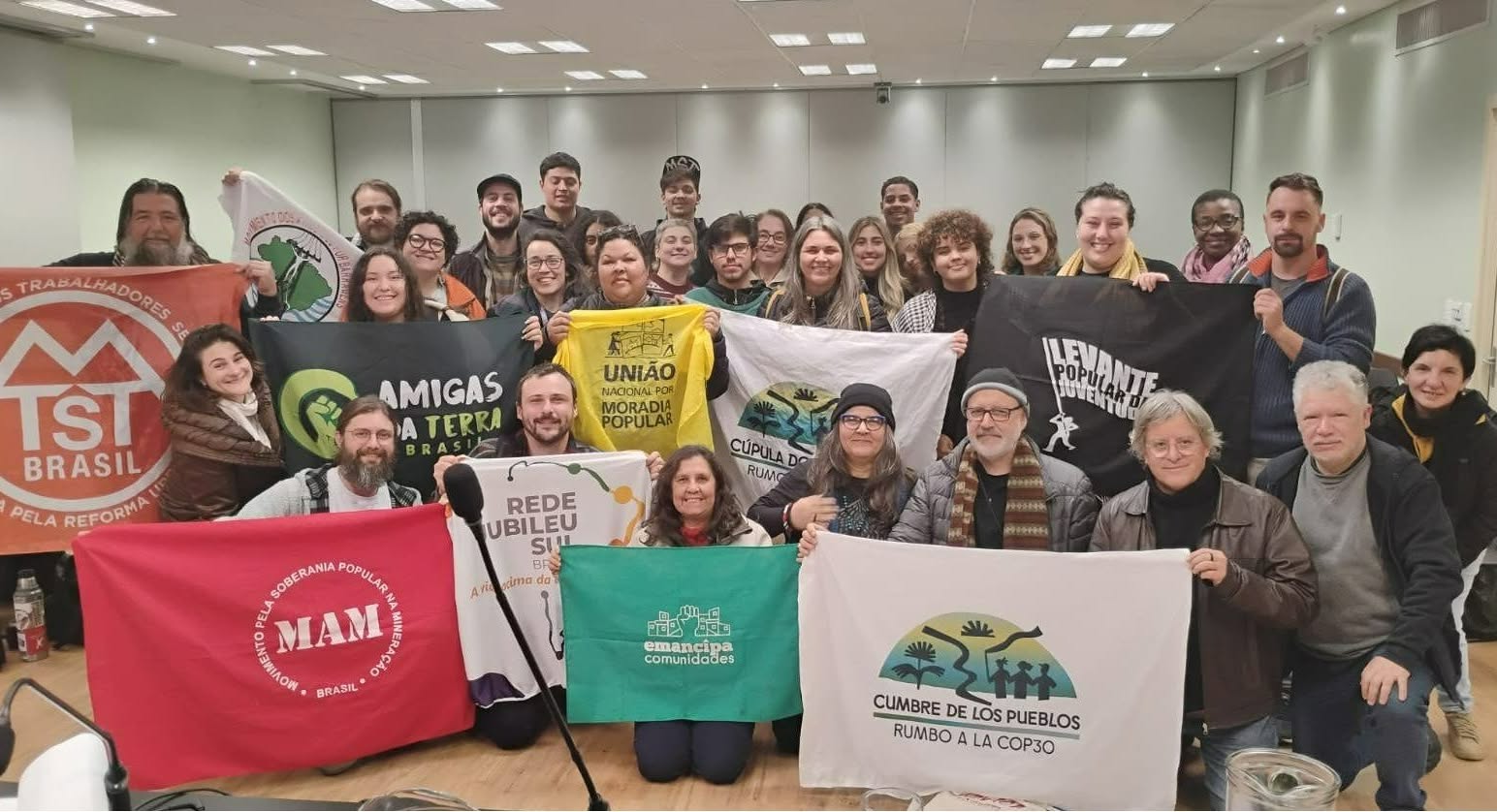‘Limited justice’: the Chiquita Brands case in Colombia
Interview with lawyer and human rights defender, Alirio Uribe

A judge in Florida, United States, found banana transnational Chiquita Brands International liable for the murder of eight people, committed between 1997 and 2004 by paramilitaries of the right-wing United Self-Defence Forces of Colombia (AUC) in the regions of Urabá Antioquia and Magdalena Medio.
The US court, where Chiquita Brands is based, ordered the company to pay 38.3 million dollars in compensation to the victims’ families.
Chiquita Brands, formerly known as United Fruit Company, has a long history of criminal meddling in Latin America and admitted in 2007 to having financed the AUC with 1.7 million dollars. The company was fined 25 million dollars as a result.
Real World Radio interviewed lawyer Alirio Uribe Muñoz, human rights defender and member of the Colombian House of Representatives for Polo Democrático Alternativo and Pacto Histórico parties.
According to investigations by the Truth Commission of Colombia, which worked to shed light on the armed conflict in the country, Chiquita Brands’ payments to the AUC were reviewed and approved by senior executives of the company. Colectivo José Alvear Restrepo (CAJAR), one of the organisations that took the Chiquita case in Colombia to the International Criminal Court, identified these executives by name and called for their extradition to Colombia. Alirio Uribe used to be a member of CAJAR.
‘We were telling the truth’
In an interview with Real World Radio, the lawyer considers the sentence against Chiquita in the US to be extremely important because it shows that the victims and lawyers ‘were telling the truth’ and that ‘this banana multinational corporation had supported the paramilitary groups.’ According to Uribe, the investigation proves that this support was not only in the form of financial support, ‘but also as political and corporate support.’
‘It was known that rifles, pistols, weapons and ammunition had been brought in for these groups from the ports of Chiquita Brands,’ Uribe explains.
Uribe clarifies that although the US judge’s decision is important, ‘justice is still limited, because these are nine families, but there could be hundreds or thousands more
‘ I believe that there are thousands of people who were victims precisely because of the economic support and weapons that they gave to this paramilitary group that caused so much terror’ he continues. In Colombia, the AUC caused ‘massacres of citizens, selective assassinations, forced disappearances, forced displacement of people and sexual violence against women,’ among other atrocities.
The human rights defender reaffirmed the need for the extradition to Colombia of the executives of Chiquita Brands ‘who in the headquarters of the company in Cincinnati, signed the documents where a record was kept of the payments for security, supposedly, to those paramilitary groups.’
According to Uribe, other families of victims of the AUC could go before the same judge in Florida based on the same sentence, demonstrating that their relatives were victims and asking for economic reparation in the same terms established in this case. There is also a lawsuit against Chiquita in the International Criminal Court and others are underway in the United States, says Uribe. Meanwhile In Colombia, the actual perpetrators of the crimes, i.e. paramilitaries, have been prosecuted while some corporate authorities are involved in ongoing judicial proceedings but have yet to be tried.
‘Translating the components of the Binding Treaty into the domestic legislation’
This year marks the tenth anniversary of the negotiation process at the United Nations (UN) for an international Binding Treaty that would enable the prosecution of transnational corporations that violate human rights. The Chiquita Brands case is just another reminder of the urgency of such an instrument. National judicial systems, especially in the Global South, sometimes in countries with less economic power than the transnationals, find it very difficult to hold companies accountable for their human rights violations.
On 7 June, MP Alirio Uribe convened a public hearing at the Colombian Congress, in the capital Bogotá, titled ‘Human rights regulatory frameworks for transnational corporations, from the Binding Treaty at the UN to a national law on human rights and business.’ He was joined by Uruguayan MP Lilián Galán, of the leftist Frente Amplio Party. Uribe and Galán are members of the Inter-Parliamentary Network for a Binding Treaty.
Uribe highlighted to Real World Radio the need for the Treaty to ensure transnational corporations that violate human rights do not go unpunished, and spoke about a national bill he is promoting at the Colombian Congress on the criminal liability of legal persons.
Meanwhile, dozens of Colombian organisations, including Siembra, the Centre for Research and Popular Education (CINEP), CAJAR, CENSAT Agua Viva – Friends of the Earth Colombia and Friends of the Earth Latin America and the Caribbean (ATALC), are promoting a national campaign against impunity, which they have called ‘The Project of the Century: against 100 years of transnational impunity.’
The campaign has two components, one of social mobilisation and pedagogy, and the other is the national bill on transnational corporations and human rights. The latter is being developed in a participatory manner and is to be presented to the legislature in 2025. The idea is to ‘translate the components of the Treaty into the domestic legislation, as has been attempted in Brazil, Argentina and other countries,’ says Uribe.
On 6 June, Colombian organisations involved in the campaign against impunity held a national meeting in Bogotá to promote their work.
Uribe tells Real World Radio that he hopes that ‘the campaign will also boost the search for truth, justice, reparation and guarantees of non-repetition, which is what the victims of the armed conflict in Colombia have always promoted and advocated for.’
‘A public policy to ensure the respect for human rights’
The congressman also says that several ministries of the country are working together in an inter-institutional manner to have a public policy to defend human rights when companies, whether national or foreign, operate in Colombia.
In this regard, Uribe recalls that the Truth Commission denounced the participation of several transnationals in the country’s internal armed conflict, such as Coca Cola, Nestlé, the members of the consortium in charge of the El Cerrejón mining project (BHP Billiton, Anglo American and Glencore), and other important national companies such as Ecopetrol and Postobon.






